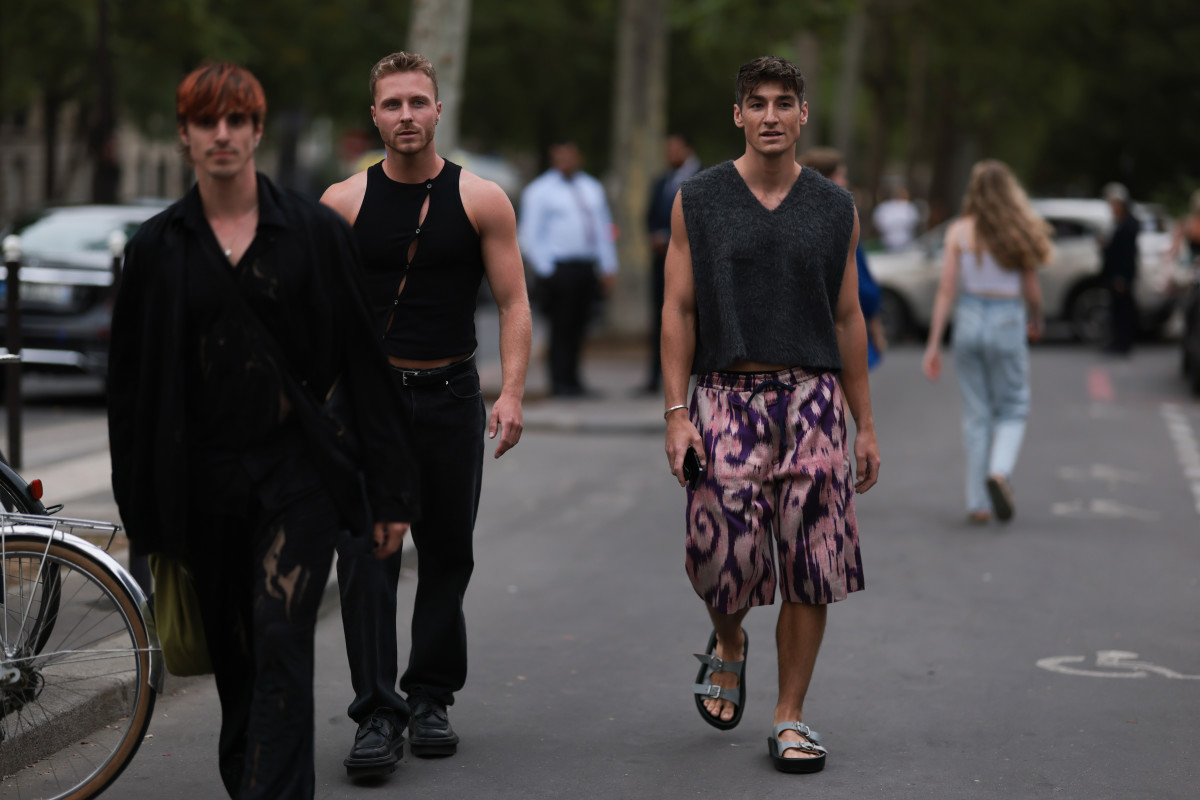
“Our purpose is to empower all people to walk as intended by nature.”
Sounds like Birkenstock, right?
Well, it is. Or at least it's one of the lead-ins to the iconic 250-year-old sandal producer’s Sept. 12 Securities and Exchange Commission filing, declaring its intention to go public.
First, the basics. Birkenstock Holding, tracing its roots to 1774, is profitable. For the fiscal six months ended March 31, 2023, the company earned 40.2 million euros ($43.3 million), off 45% from the year-earlier period. Revenue rose 19% to 644.2 million euros. Gross-profit margin widened to 60% from 56% a year earlier.
For fiscal 2022 ended Sept. 30, revenue was 1.24 billion euros ($1.33 billion), up 29% from a year earlier. The fiscal 2022 revenue was derived 54% from the Americas, 36% from Europe and 10% from Asia-Pacific-Mideast-Africa.
The filing does not specify the number of shares Birkenstock plans to offer or a potential offering price for them. Bloomberg reported that the deal might value Birkenstock at more than $8 billion. The company plans to list the shares on the New York Stock Exchange under the symbol BIRK.
Leading the underwriting are Goldman Sachs, JPMorgan Chase and Morgan Stanley.
The private-equity firm L Catterton controls Birkenstock and will continue to do so after the offering closes.
Birkenstock employs 4,800 people full-time and another 900 it calls contingent staff. Chief Executive Oliver Reichert, 52, the first person outside the Birkenstock family to helm the company, was named to the post in 2013.

Birkenstock: 'global zeitgeist evolved around us'
In the filing, the London-based company — the sandals are made in Germany — makes several points that will resonate with its customers.
One is individual loyalty: The average Birkenstock wearer owns 3.6 pairs, according to the company’s survey data.
Another is health. Birkenstock says its “footbed represents the best alternative to walking barefoot, encouraging proper foot health by evenly distributing weight and reducing pressure points and friction.”
The company emphasizes quality. “[We] operate a vertically integrated manufacturing base and produce all our footbeds in Germany. In addition, we assemble over 95% of our products in Germany and produce the remainder elsewhere in the EU. We maintain strict control over our entire supply chain, responsibly sourcing materials that originate mainly from Europe.”
And a fourth is generational loyalty, through changing tastes and mores — or as the company puts it, “as the global zeitgeist has evolved around and moved toward us.”
"In the 1960s and 1970s, the global peace movement and hippies adopted Birkenstock ... as part of their celebration of freedom and free-spiritedness,” the company wrote.
“In the 1980s, the green movement adopted Birkenstock … for our ethical approaches to production and consumption. In the 1990s, inspired by the feminism movement, more women wore Birkenstocks to free themselves from long-standing fashion norms that required wearing painful high heels and other constricting footwear.
“Today, consumers turn to Birkenstock in their search for healthy, high-quality products and as a rejection of formal dress culture.”
Risk factors in Birkenstock's IPO filing
As an investment, the company lists no shortage of potential risks.
Competition from established producers and new entrants into the market is “intense.” Consumers can be fickle. So the company must “adapt to changes in consumer preferences and attract new customers.”
Birkenstock says counterfeits hurt the brand and the company’s market share. (The website warns consumers this way: "Be wary of websites that offer Birkenstock products on sale or at deep discounts. If you are offered a Birkenstock at a price that seems too good to be true, it probably is.")
And, Birkenstock must successfully “execute our [direct-to-consumer] growth strategy,” and it faces risks associated with its e-commerce platforms.
Get investment guidance from trusted portfolio managers without the management fees. Sign up for Action Alerts PLUS now.







